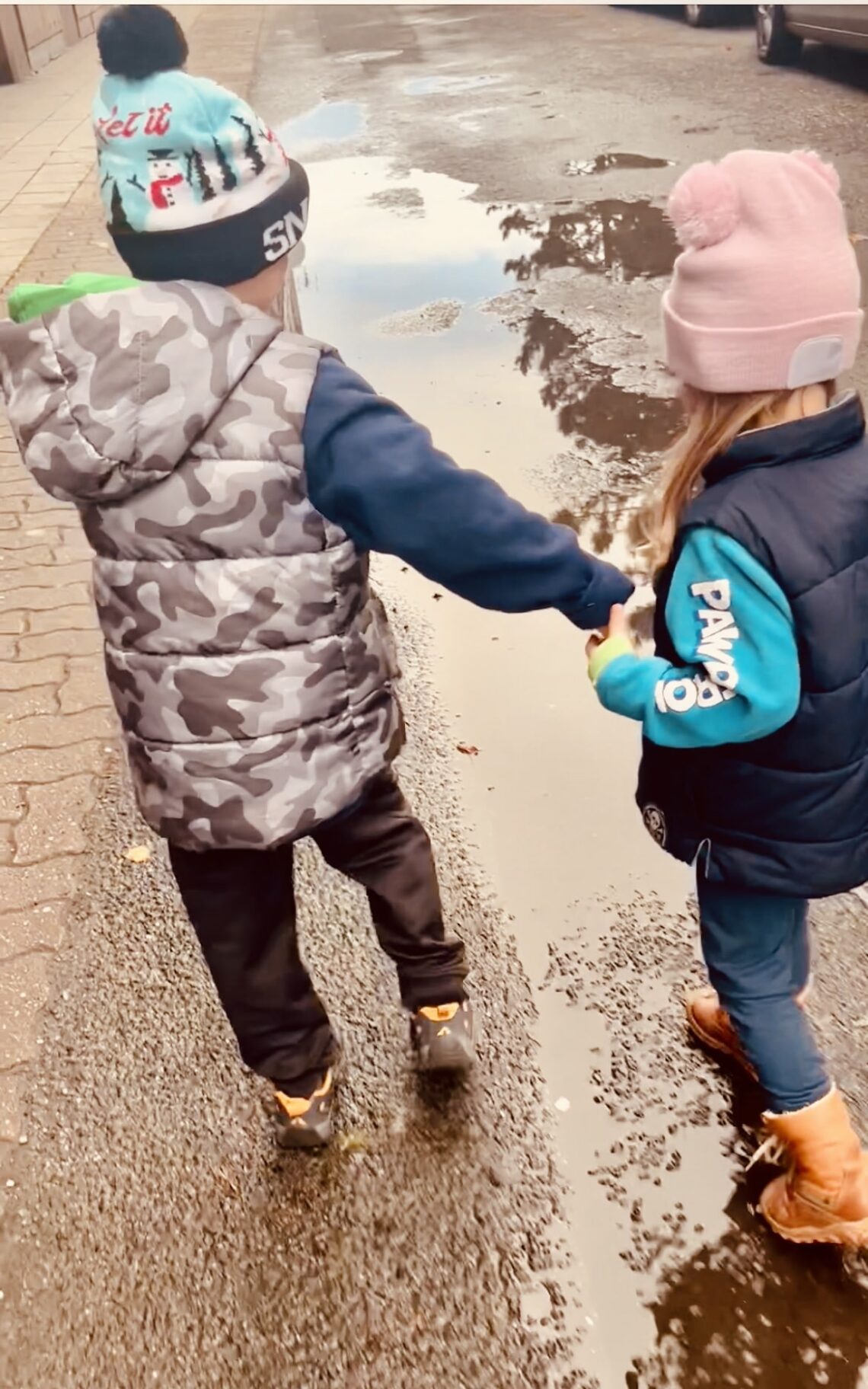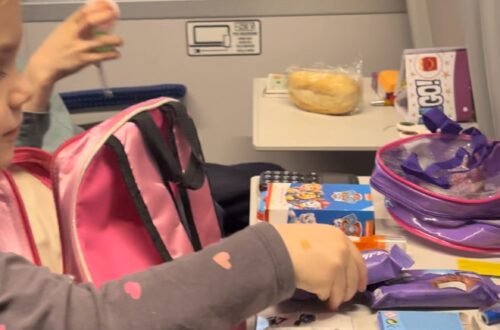
IS THERE A SMOOTH WAY TO GET KIDS OUT OF THE HOUSE?
I recently heard from my friend that she rushed her daughter to leave preschool because Lilly was having painting courses in 10m minutes. And when the fifth time she refused to wear her shoes, my friend gave up, and Lily went outside without. As a mother of two small children (4 and 7 years old), I experience this type of trauma very often.
I would be happier if the parents around me didn’t hide their real, everyday experiences with their children. Advice for parents contained in the books did not differ from the realities of parenting.
In real life, every morning looks like this:
EXIT TIME
– before having children –
You get up, get dressed, spend time in the toilet, spend time in the kitchen, get your keys, and go out.
EXIT TIME
– after having children –
One of the children wakes you up by jumping on you or hitting you in the face with a paw patrol toy (in my case a younger child).
No time for the toilet, not time for the kitchen, except for preparing breakfast for the children.
You’re dressed in 5 seconds. Where the older child still didn’t get out of bed.
The younger one already has socks and when I asked: “Dory, please don’t run naked“, I heard the answer: “I’m not naked, I’m wearing socks.”
When I miraculously managed to get the two of them to breakfast, Dora was still only in socks and Patrick was still in pajamas.
Patrick dresses always quick and full of energy waits at the door while Dorothy changes her leggings again.
At this time, without breakfast, a quick sip of coffee and an even quicker toilet, I’m trying to find my keys.
Patrick starts sweating and asks Dora to zip up her jacket faster, but Dory takes a long time without his and my help. When we offer to help her, she reacts angrily: “I can do it myself, leave me alone.” The same answer when we want to help her put on her shoes, leggings, hat, etc.
When the children are ready and it looks like we won’t be late, I’m still looking for the keys:
“Patrick, you played with my keys yesterday?”
“Yes, Mom.”
“And where did you put them?“
“I forgot.”
This is probably what all parents hear from their children very often. Funny, he still remembers and tells me off, when I threw his dino picture into the recycling.
In the end, Dorothy saves the whole situation. She remembers that when she put my wallet in the car’s trunk, she also saw the keys there.
When did you take my wallet from my purse?
“I don’t remember.”
My children have incredibly short memories.
Mostly I managed to organize the entire morning outs smoothly. A few times right next to the Nursery door, my daughter remembers that she didn’t have her favorite teddy bear for a nap. And this is a huge drama for her. Dora begins to cry and Patrick says in a calm voice:
“Eh, it’s not such a problem yet, I see a bigger one.”
“What problem? Say quickly, please.”
“You have bird poop on your shoulder, Mommy.”
Unacceptable mornings
The stories you read in parenting books about how you should eat meals with your kids and the advice on how to give your kids independence in dressing are sweet but unrealistic. Mornings with children are always unacceptable. And days when you slowly walk to school happened, but mostly we are running. https://littlepuzzlesandme.com/ordinary-mornings-by-boss-baby/
I concluded that the principles in Paretning’s book were written by authors who never had children or who had children but were raised by grandmothers, nannies, or aunts. The rules of parenting are completely different when both parents work and possibly grandparents’ help is available on weekends or when the child is sick.
I am happy when my children are independent because they are. But children don’t know the concept of time, hour, and minute. And any attempts to speed up the morning rituals end in morning drama. https://littlepuzzlesandme.com/the-specialist-in-childrens-morning-dramas-wanted-immediately/
Does this seem more familiar to you, my parents?
Or maybe in your case, everything goes according to the rules contained in parenting books?





